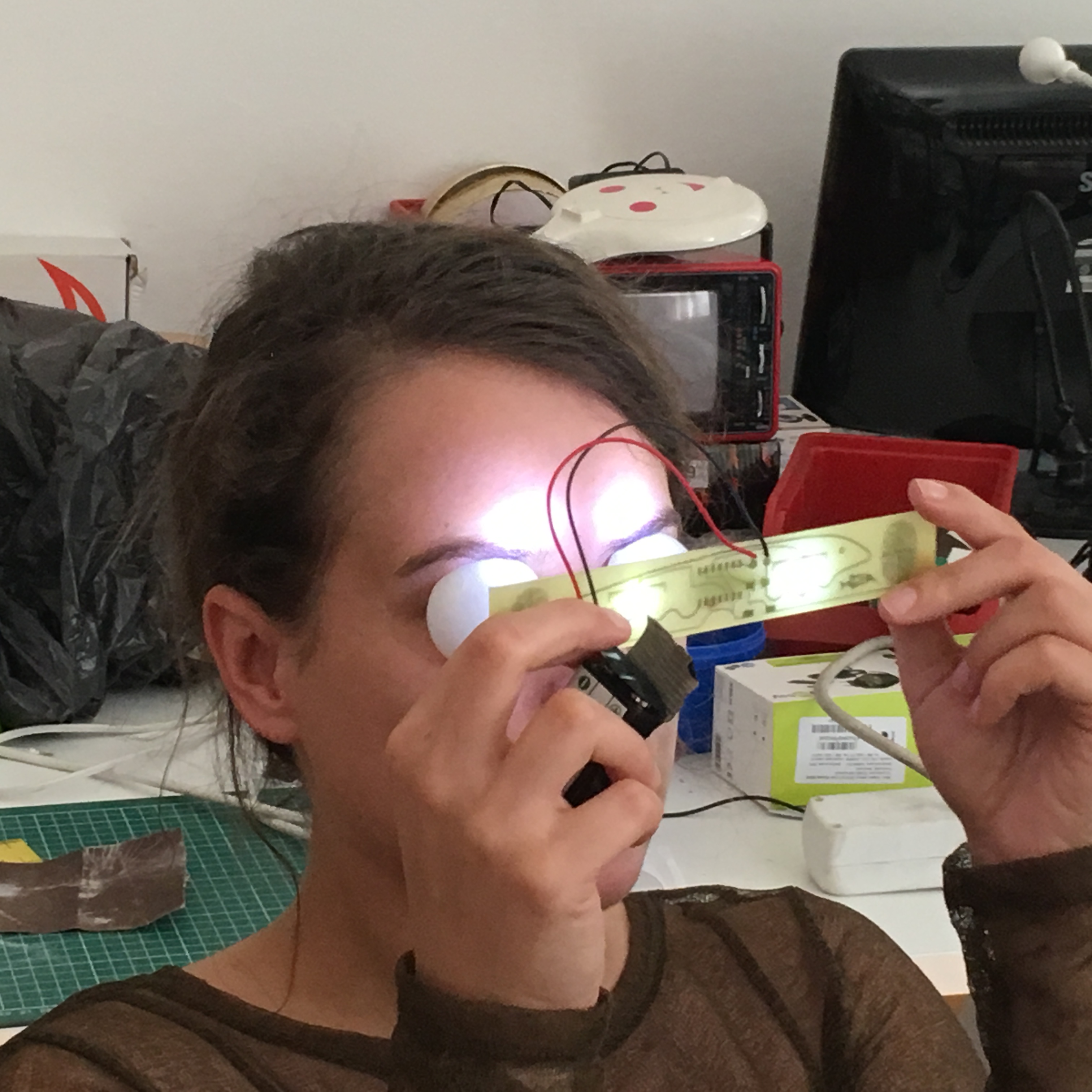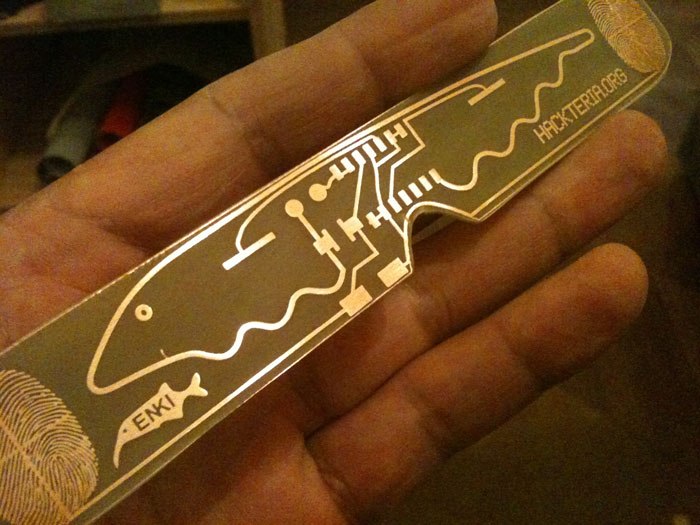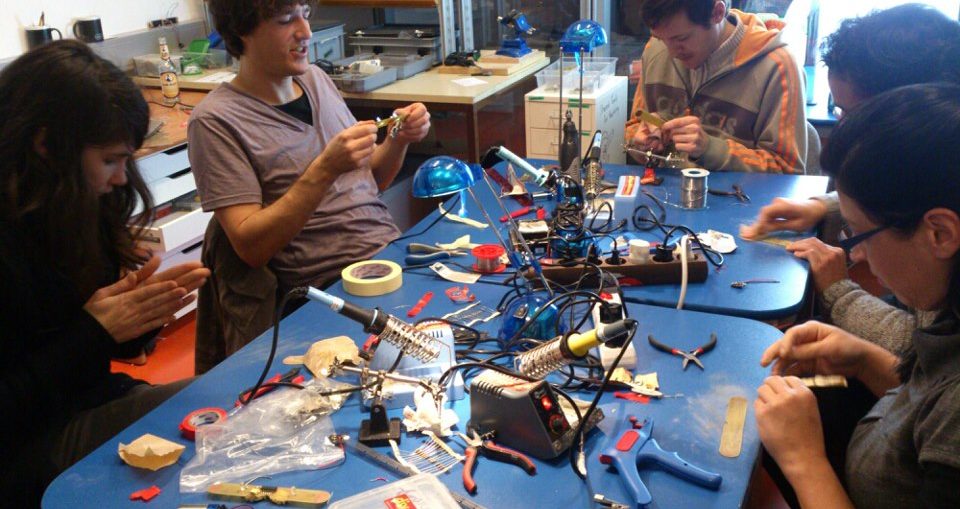After constructing the Fish-brain-machine PCB circuits we spent some time experimenting and describing the hallucinogenic visuals created by the stroboscopic light. The ping pong balls over the eyes diffuse the LED light, making for a more intense effect - and enabling use with eyes open. Here they describe some of the effects including seeing colours and 'a strange experience' of seeing with only one eye - I get this exact same feeling when using it. It is also hard to know if your eyes are open or closed. [See also Re-mapping the senses workshop ] https://www.youtube.com/watch?v=Lwne5xICLkI
Tag: fish-brain-machine
Radiona workshop, Zagreb
I'm doing a workshop related to my research, perceptual illusions and altering perception through experiments, Clay hand illusion and other activities based on sound and light and taste, at Radiona Zagreb, 21-22/04/2018 https://radiona.org/ check out the web Re-mapping the senses workshop page and resources here...
Fish-brain-machine
As part of my Enki exhibition at Kapellica Gallery in Ljubljana 2012, I developed a related perceptual illusions and brain hacks workshop with Marc Dusseiller [Hackteria], as part of the gallery’s Biotech program. We came up with the idea to make a special issue circuit for the workshop and we set to work designing a circuit the encapsulated the Enki project in miniature. After a couple late nights, we came up with this super cool PCB design. Marc worked hard to create a fully functional efficient design, which was also aesthetically pleasing. The outline of the fish is also the ground in the circuit. This has to be the most ultra minimal brain-machine available to build. 6 components. We spent further
Workshopology
During my visit to Ljubljana in I was introduced to the ‘Workshopology’ concept and network. The idea is to bring together like-minded ‘Workshopologist’ to discuss methods and best practice in this area. More specifically the participants are dealing with similar subject matter. Open-source collaborative approaches to teaching and learning in DIY electronics, science and biotech. Taking part are Artist, engineers bio-hackers and scientist and various other creative ‘workshopologists’. We discussed the workshop as a tool for delivering and sharing knowledge outside of traditional educational frameworks, how types of workshop can be categorised and analysed. Outside of my own personal workshop practice, it was interesting to think about iLog workshop as a take on the electronics kit where limitations are provided as


